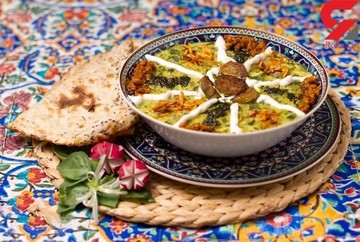Iran is a Muslim country and During the holy month of Ramadan, Muslims fast during the day, say prayers and then break their fast with Iftar, a special evening meal.
Fasting is obligatory for Muslims, with the exception of pregnant women, the ill, children or those suffering from diabetes.
From sunrise to sunset, Muslims refrain from eating any food, drinking liquids and smoking.
The philosophy of fasting is to make the people understand the situation from which the poor and the needy are suffering; and learn to appreciate God’s blessings in their lifetime.
The philosophy encourages the people to share food with the poor, inviting people for the meal (Iftar) to break the fast at sunset, giving donation to charity, and reading part of holy Quran during this month in a way to complete the entire text of the holy book in one month to deserve the divine rewards.
The ancient Iranian people, like their ancient civilizations, held special rituals for many national and religious occasions, which, after the advent of Islam in Iran, many Islamic occasions had special colors and smell.
Ramadan is one of the Islamic occasions after Islam spread to Iran, and the people of this ancient land perform Ramadan rituals in their own way.
Many Muslims, including the Shia, perform rituals in the holy month of Ramadan with special customary specifications, including the mosque's desolation to welcome these all-spiritual events, as well as holding a party in the form of Iftar ceremony.
Iranian cuisine is as delicious and captivating as ever, considering all the different ethnic groups and cultures residing in the country.
The art of cooking is legendary in the realm of Middle Eastern food and each part has its own recipe and special dishes.
For that matter, the type of food during the month of fasting is also of a much more importance and verity.
Ramadan is one of the times to observe that Iranian legendary hospitality.
It is a tradition in Iran to invite guests during Ramadan and at the time of breakfast, even uninvited people are welcomed.
Iranians believe that God showers the host with blessings when he shares his food with other people and during Ramadan this tradition comes even more into practice. In Iranian culture, “the guest is God’s friend” after all!
In this report, we will talk about some of the traditonal cuisines and customs in the provices and cities of Iran.
*** Shiraz's customs in Ramadan
In Fars province, the guest in the iftar table with special cooking is welcomed, where the people of Fars province and Shiraz break their fast with a variety of hot drinks such as 'Oxtongue (Gavzaban), Phoenix Dactylifera (TarUnhe), Eglantine (Nastaran) or Milk and Dates.
Ashe - asbzi, Ashe -Karde and Kalam Polo as well as Tar - e Halva in Shiraz are also amongst the favorite cuisines served during the holy month of Ramadanin Shiraz.
*** Shami, food of northern Iran
Shami is the food that people in the northern Iran cook it by frying small pieces of dough which is a mixture of meat and split yellow peas.
They often serve this food during Ramadan beside Iranian bread, cheese, green herbs and non separable part of Iranian breakfast table, Chai (Black tea).
In northern Iran there is a tradition of making this special sweets as well, Khoshkar made by rice flour.
However, Zulbia and Bamia which can also be found in Arab countries and Turkey, is the national Iranian sweet during Ramadan which is sold throughout the country.
Iranians often break their fast with a small portion of food at the time of sunset, following a proper meal after the Maqrib prayer and most family members gather at one home, one at the time.
Breaking the fast has this special ritual that they will wait for the Moazzin to say the call for Maqrib prayer (often on TV or from a mosque nearby).
They say some supplications afterward. But still no one rushes for the meal. They gently break the fast with a glass of warm water and some dates as it was the tradition of prophet Muhammad.
And patiently they keep themselves from eating until they say the night prayers. Just then, they start the bigger meal after a long period of fasting in which not even a drop of water has entered their mouth.

Millions of Muslims in Iran and around the world have marked the beginning of the Holy Month of Ramadan with special traditions making the religious ceremony attractive especially for foreign tourists.
News ID 190263


Your Comment